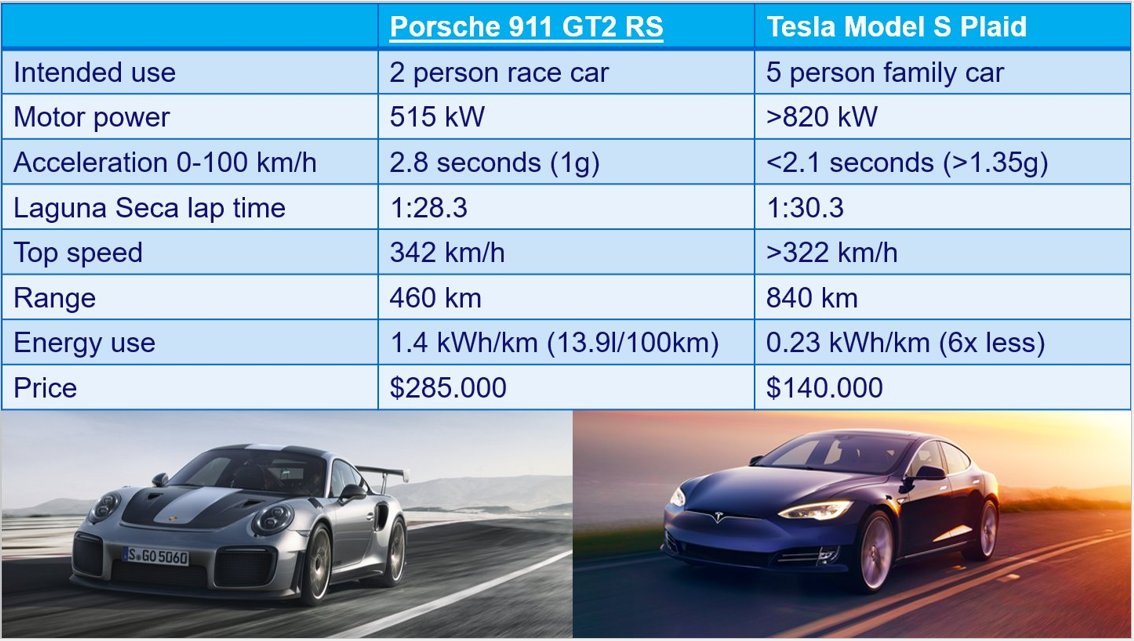
EV sales increased over 100% in 2021!
In 2022 a 61% growth to over 10 million vehicles is expected!
I just tweeted about the amazing growth of solar PV but with EVs we see the same pattern.
🧵
bloomberg.com/news/articles/…
In 2022 a 61% growth to over 10 million vehicles is expected!
I just tweeted about the amazing growth of solar PV but with EVs we see the same pattern.
🧵
bloomberg.com/news/articles/…

I always focus on yearly exponential growth. With 61%, 2022 is expected to be a phenomenal year for EVs! But if you look at the entire period (with an average of 59%) it's actually average.
So I'm not surprised at all. Just very happy that it continues to go as can be expected.
So I'm not surprised at all. Just very happy that it continues to go as can be expected.

By the way: as you can clearly see in the previous table, China is leading the world. Not only in production but also in adoption. So maybe it's only to be expected that they have most of the resource refineries and battery production. (The same is true for solar PV.)
And in a funny twist, the @Tesla Model Y became the best selling car in China's premium SUV segment.
teslarati.com/tesla-model-y-…
(@tesla has also produced almost 1 million vehicles in 2021, became valued at 1 trillion dollars and saw profits explode.) techcrunch.com/2022/01/26/tes…
teslarati.com/tesla-model-y-…
(@tesla has also produced almost 1 million vehicles in 2021, became valued at 1 trillion dollars and saw profits explode.) techcrunch.com/2022/01/26/tes…

The growth is partly kick-started by subsidies, but mostly due to scientists, engineers and entrepreneurs that develop better and cheaper batteries. 

Warning: if resource production is not scaled up, this yearly price decrease may stagnate. One more reason to ditch this addiction to ever larger vehicles and to treasure smaller vehicles and bicycles. (See: I said it. No need to comment on this.)
bloomberg.com/news/articles/…
bloomberg.com/news/articles/…
All in all there is reason to be hopeful that targets like 100% zero emission cars sold in Europe in 2030 are realistic and that we are kicking our addiction to oil.
And that's a biggie: I think EVs (and solar and wind replacing coal and gas) can keep us below 2C.
And that's a biggie: I think EVs (and solar and wind replacing coal and gas) can keep us below 2C.
• • •
Missing some Tweet in this thread? You can try to
force a refresh










